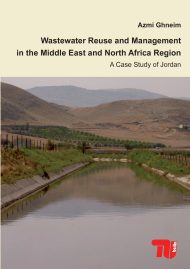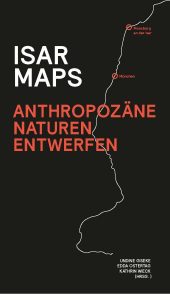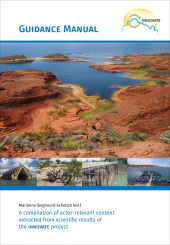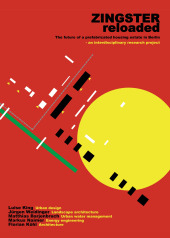Wastewater reuse and management in the Middle East and North Africa – a case study of Jordan

Format: 14,8 x 21,0 cm
Publishing year: 2010
The MENA (Middle East and North Africa) region is the driest in the world. Water resources are deteriorating while demand for water is increasing due to the rapid population growth. Irrigated agriculture consumes the largest volume of water resources as a result of continuous demand for food production. A huge potential for satisfying this increasing demand exists in the reuse of municipal wastewater in agriculture. The reuse of treated wastewater in agriculture will provide supplement water quantities for irrigation and will free amounts of freshwater to be reallocated within the municipal water sector, where higher water quality is required. Currently, some wastewater quantities in the MENA countries are already reused. However, the amounts of wastewater reused in comparison to collected and treated wastewater are still low. The main assumptions of this dissertation are that the extent of conflict over freshwater resources between the different water sectors can foster wastewater reuse in agriculture. In addition, the insufficiency associated with wastewater reuse has less to do with the expensive treatment processes rather than with the lack of appropriate water policies and the enabling institutional setting. The dissertation’s main objective is the analysis of policies, legal and institutional settings and the components of wastewater reuse in agriculture. A systematic approach was used to identify existing organizational structures; roles and responsibilities of different actors involved in wastewater reuse. The in-depth-analysis is presented through the case study of Jordan. For evidence, the dissertation focuses on an extensive review of the literature available and policy documents and laws on wastewater reuse in Jordan.



